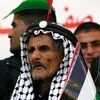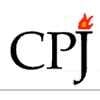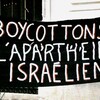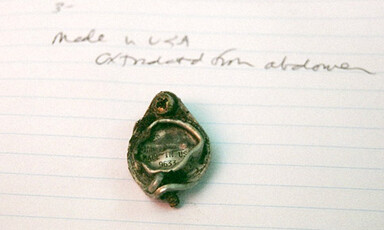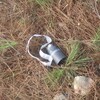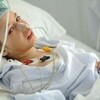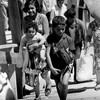
The 40/60 Campaign for Freedom and Return
22 December 2006
June 6, 2007 marks 40 years since Israel’s occupation of the West Bank and Gaza, May 15, 2008 marks 60 years of the Palestinian Nakba (catastrophe). The future of the Palestinian people is at a crossroads; 2007 - 2008 marks a historic opportunity for faith-based organizations, individuals, community groups, the solidarity movement, unions and political parties to pool resources and activities and campaign for a rights-based solution of the Israeli-Palestinian conflict. Critical is the focus on the enforcement of the rights of Palestinian refugees under international law. Read more about The 40/60 Campaign for Freedom and Return
